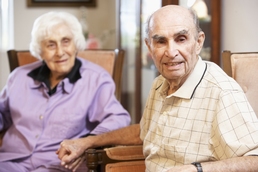Telehealth and telecare could save NHS £1.2 billion, says Minister for Care Services

At the recent international conference for telehealth and telecare, Minister of State for Care Services, Paul Burstow spoke of how the appropriate use of telehealth in the NHS could help people to live more independent lives and stay in control of their care. This would mean patients no longer had to wait at home for the doctor or district nurse to call to check vital signs, they would spend less time in NHS waiting rooms and anything that could be serious would be picked up before it had a chance to get worse.
Paul Burstow said: ‘The widespread adoption of telehealth and telecare as part of an integrated care plan will mean better quality of care and greater independence for people with long-term conditions.
‘Delivered from the front line it could save the NHS up to £1.2 billion over five years. This new approach is not about the technology, it is about a revolution in personalised healthcare that can improve the lives of three million people, increase their independence and dignity as well as reduce the time they spend in hospital.
‘The UK is one of the world leaders in the way telehealth and telecare can be used.’
The headline findings from the largest randomised control trial of telecare and telehealth in the world show 20 per cent fall in emergency admissions, fifteen per cent fewer visits to A and E, fourteen per cent fewer elective admissions and fourteen per cent fewer bed days.
Telecare and telehealth use technology to help individuals live more independently at home and include personal alarms and health-monitoring devices. These services are considered helpful for people with long-term conditions, as they can give the individual and relatives reassurance that the individual is safe at home and saves them needing to make regular visits to the doctor’s surgery. Telehealth and Telecare can help people to live independently in their own home for longer, perhaps avoiding a hospital stay or putting off moving into a care home.
A copy of the speech is available online at: www.wp.dh.gov.uk/mediacentre/?p=14571
Latest News
 29-Jul-24
Dementia Bus gives carehome.co.uk staff insight into life with dementia
29-Jul-24
Dementia Bus gives carehome.co.uk staff insight into life with dementia
 01-Mar-24
Find out the top care homes in 2024
01-Mar-24
Find out the top care homes in 2024
 21-Mar-23
UK's top care homes in 2023 revealed
21-Mar-23
UK's top care homes in 2023 revealed
 03-Jan-23
carehome.co.uk launches free care helpline
03-Jan-23
carehome.co.uk launches free care helpline
 13-Dec-22
5 mins with Emily Whitehurst, chief operating officer for Constantia Healthcare
13-Dec-22
5 mins with Emily Whitehurst, chief operating officer for Constantia Healthcare